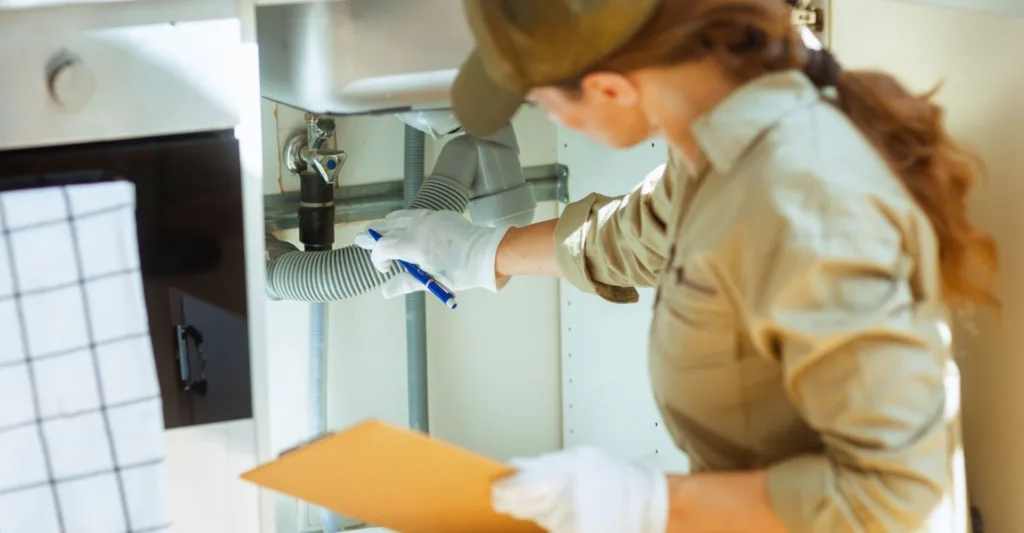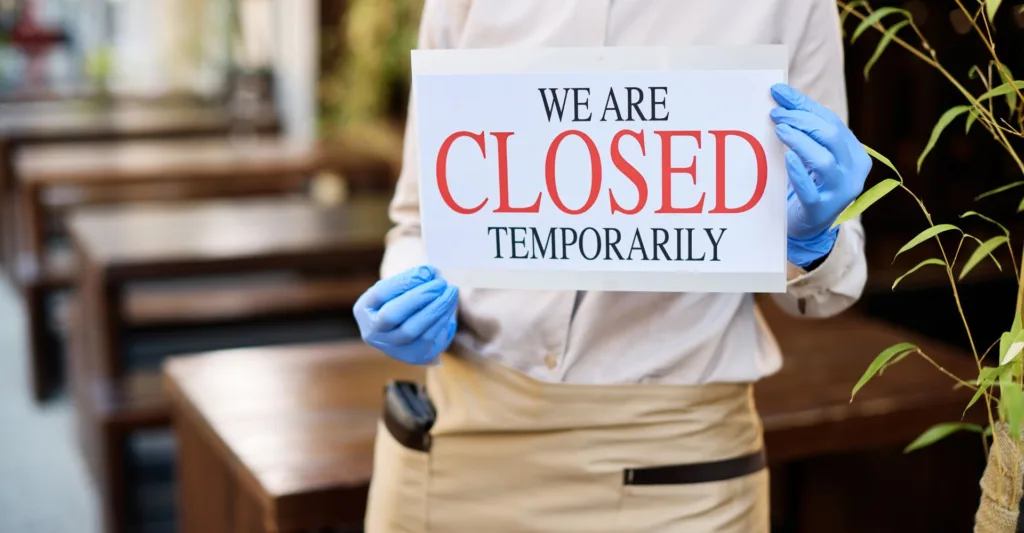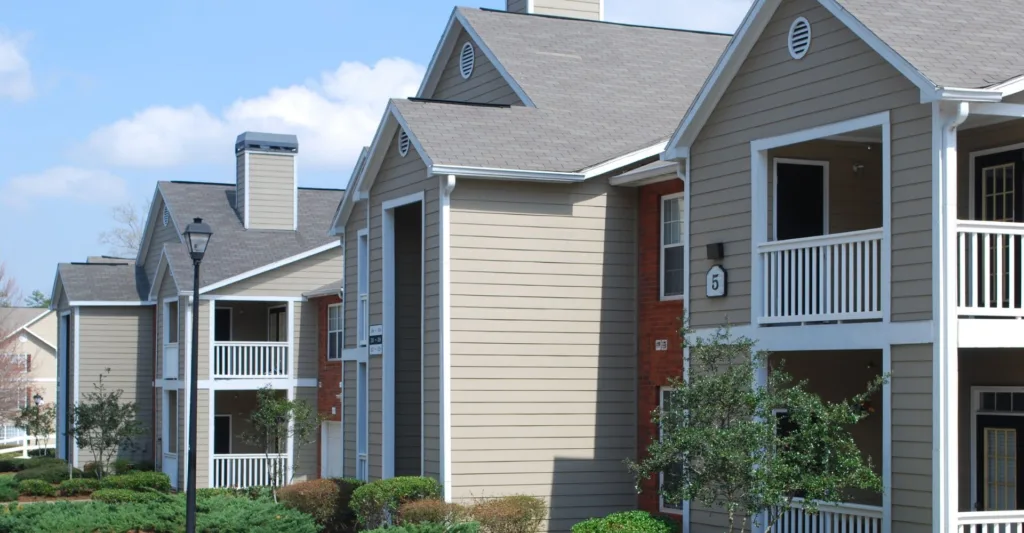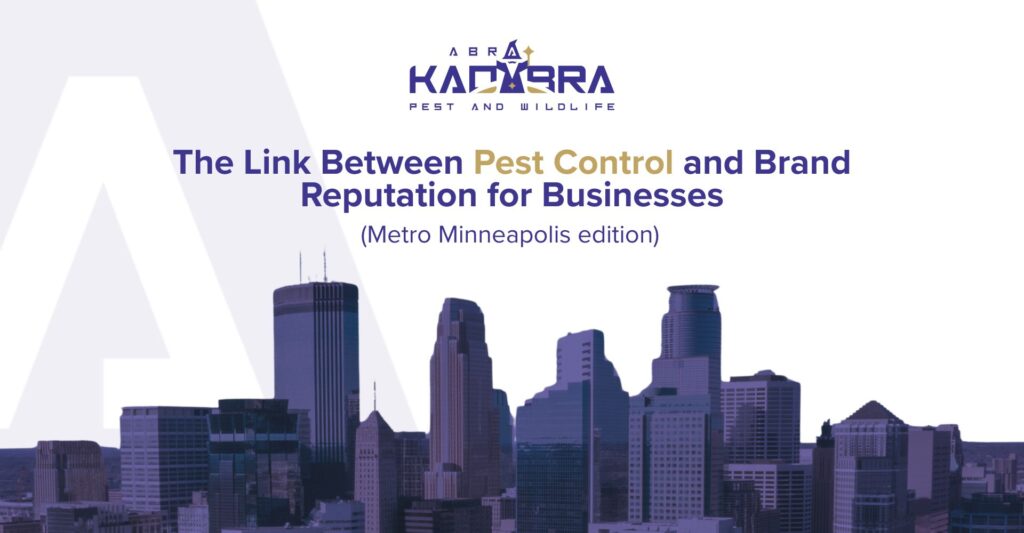When a customer walks into a business, a downtown Minneapolis café, a manufacturing facility in Blaine, or an office in Edina, their first impression is shaped by more than polished interiors and friendly staff.
A single cockroach sighting in a bakery display case, a line of ants marching across a hotel buffet, or the viral photo of a rat behind a restaurant counter can damage a brand faster than almost any other operational failure. In the Twin Cities market, where word-of-mouth travels fast and online reviews are front and center.
In this blog, we’ll unpack how pest problems become reputation problems, and why proactive pest management should be part of your brand strategy.
How pests turn into PR crises
Two things make pest incidents uniquely dangerous for reputation:
- Visibility + virality. Seeing a pest is visceral and memorable. Photos and videos posted to social media or review sites spread quickly; a single negative post can reach thousands in minutes.
- Trust erosion. Pests imply poor hygiene and lax standards. For food-serving businesses, lodging, and even office spaces, that implication can destroy trust and turn repeat customers into lost customers.
Research shows that reputational hits spread far beyond the initial incident: companies with strong reputations still suffer measurable losses after crises, while smaller or local brands can experience disproportionate damage because they rely heavily on community goodwill. Treat these risks like any other reputational hazard your leadership team manages.
Why Minneapolis–St. Paul businesses should care About Reputation Management
Minnesota consumers expect clean, safe places to eat, shop, and work. Local regulators and health departments maintain clear rules and conduct regular inspections; failing to prevent or promptly correct pest issues can lead to public record citations. For food businesses in particular, health-code violations tied to pests are often published and can appear in local news and online search results — compounding reputational damage. Operating in the Twin Cities means being visible: community reviews, neighborhood groups, and local press are all paying attention.
The real cost: not just extermination fees
It’s easy to think of pest control as a line-item expense. In reality, businesses should budget for a prevention-and-recovery program that protects revenue and reputation. Consider the downstream costs:
- Lost sales from bad reviews or social posts. Research indicates that online reviews have a significant impact on purchasing decisions. Negative feedback can deter a considerable share of potential customers. In a local market like Minneapolis, even a handful of bad reviews can reduce walk-ins and reservations.
- Operational disruption. Cleanup, inspections, temporary closures, and remediation require time and staff focus, diverting attention away from serving customers.
- Regulatory penalties and legal exposure. Repeated violations can result in fines or more severe sanctions, particularly for food processors and restaurants.
Long-term brand damage. Consumers tend to recall crisis stories longer than they remember ad campaigns. Recovery requires time, transparency, and consistent proof that the problem is solved.



Who’s most at risk in the Twin Cities?
Certain business types in the Minneapolis metro are particularly vulnerable:
- Restaurants, cafes, and bars. Food handling makes these businesses prime targets for negative reviews and regulatory attention. A single pest sighting often ends up in a viral photo or a scathing Yelp review.
- Hotels and short-term rentals. Guests post immediately on platforms like Airbnb, TripAdvisor, and social media; complaints about bed bugs or rodents can tank occupancy rates overnight.
- Food processing & distribution facilities. Contamination risks here can lead to product recalls. A worst-case scenario for brand trust and legal liability.
Property managers and multi-tenant buildings. Tenants equate pest problems with poor building management; property reputation and lease renewals are at stake. Abra Kadabra’s guidance for property managers offers practical steps to protect tenants and reputation.



Prevention = brand protection: a simple framework
Consider pest management as part of your brand’s playbook. Here’s a practical, Minnesota-focused framework:
- Assess risk & document standards. Start with an IPM (Integrated Pest Management) inspection to identify entry points, attractants, and high-risk zones. Document your pest-prevention standards in operational manuals so staff know what “good” looks like. (Abra Kadabra offers commercial inspections and IPM-first approaches tailored to Twin Cities properties.)
- Eliminate attractants. In Minnesota’s varied seasons, rodents seek warmth in fall and winter, and insects surge in spring and summer. Keep dumpsters away from doors, seal exterior gaps, and enforce strict food-handling rules. Resources for commercial property managers list practical daily and monthly tasks.
- Schedule regular maintenance. Routine monitoring and service reduce the likelihood of visible infestations, providing documentation that can be shown to customers, tenants, and inspectors.
- Train your team. Frontline staff should be aware of how to identify early signs of pests and the escalation process. Faster detection equals faster mitigation and fewer photos for social media.
- Plan for communications. If an incident happens, be honest, prompt, and factual. Publicly post what you’re doing to fix the problem and what customers should expect next — this is critical to regain trust quickly. Research on crisis communications highlights that organizations that respond promptly and transparently recover reputations more effectively.
These are the kinds of local success stories that smaller Twin Cities businesses should aim to replicate.
How pest-control partners become PR partners
Choosing the right pest control company is about more than just price. Look for partners who:
- Use IPM and offer documentation you can share with customers, tenants, or inspectors.
- Offer specialized services for your industry (restaurants, food processing, historic buildings, property management). Abra Kadabra lists commercial services and specialized programs for food facilities and historic structures in the Twin Cities.
- Provide training resources for staff and a customer portal for records.
When your pest-control vendor understands communication and documentation, they help close the loop between operations and brand teams.
Reputation recovery: what to do if it happens
No matter how good your prevention, incidents can still occur. When they do, treat the event like any other PR crisis:
- Act immediately. Schedule remediation, clean thoroughly, and keep your customers and community informed.
- Document steps for remediation. Photos, inspection reports, and dated service logs demonstrate responsibility and action. These records are vital for addressing online complaints and inspector follow-ups.
- Respond on review sites and social media. A calm, factual public response that acknowledges the issue and details corrective steps demonstrates accountability and reduces escalation. Consumers expect businesses to respond.
- Follow up. After the remediation, invite affected customers back with clear proof that the problem is resolved and measures are in place to prevent recurrence.
Practical next steps for Twin Cities businesses
- For restaurants: Review your Minnesota food safety obligations and inspection results, then add scheduled pest inspection clauses to vendor contracts. (Minnesota Department of Health and relevant state codes outline expectations for food establishments.)
- For property managers: implement the checklist in Abra Kadabra’s Commercial Property Manager guide and schedule quarterly exterior inspections.
- For food processors and distributors: invest in a documented, contract-based pest program and keep logs easily accessible for buyers and inspectors. Abra Kadabra offers tailored programs for food-processing facilities in the Twin Cities.
In Conclusion
Your brand is one of your most valuable assets. Pests are a preventable reputational risk, only if you treat them with the same seriousness as cybersecurity, product quality, and customer service.
For Twin Cities businesses, this means blending local regulatory awareness, proactive facility management, strategic vendor partnerships, and effective communication.
Suppose you’d like a tailored plan for your Minneapolis–area business. In that case, whether it’s a restaurant, property, or food-processing site, Abra Kadabra Environmental Services provides commercial pest programs, IPM inspections, and documentation-ready services to help protect both your operations and your reputation.
Request a commercial quote or learn more about their services, including a customer portal that allows staff, customers, and inspectors to access records conveniently.

